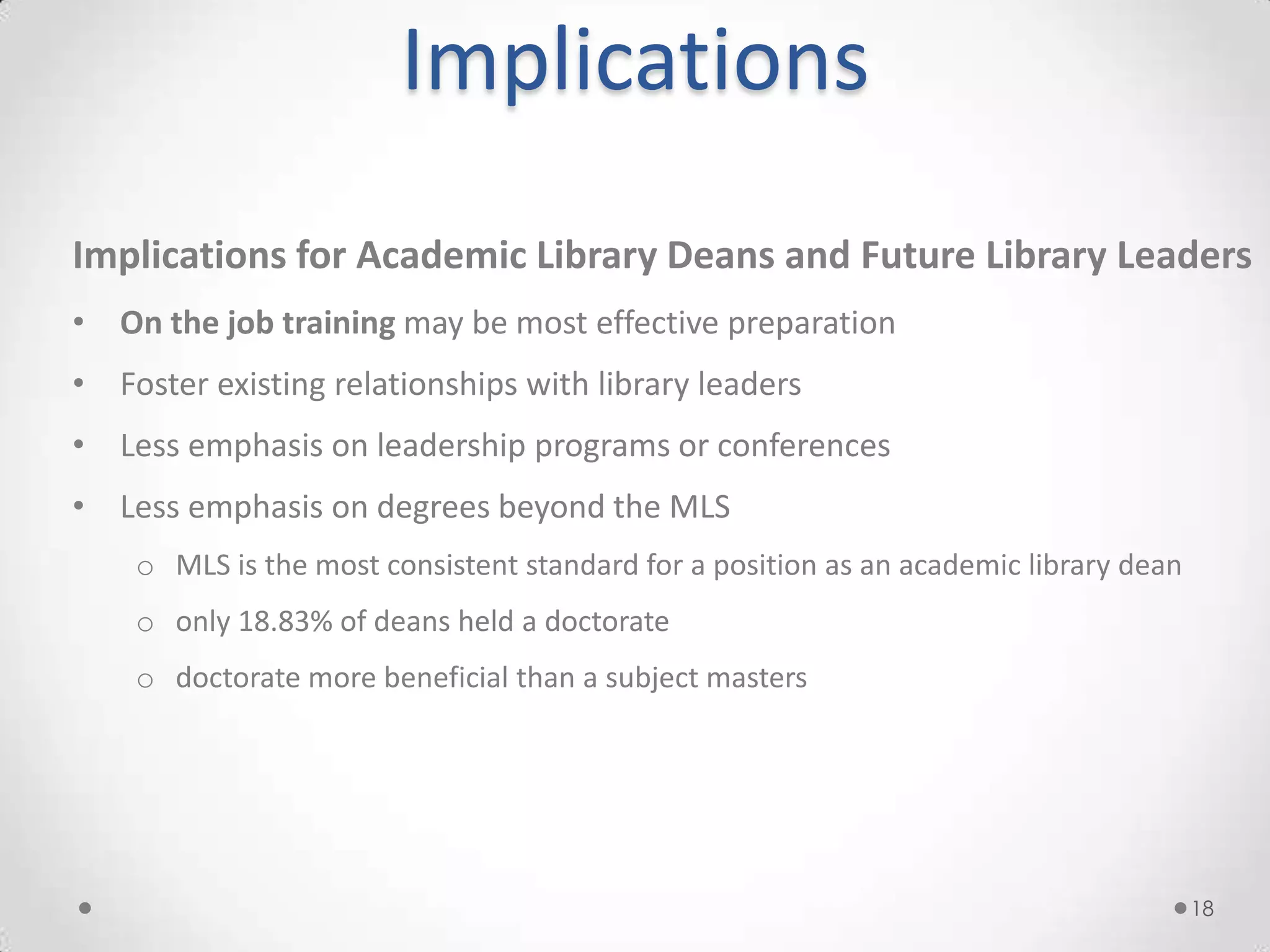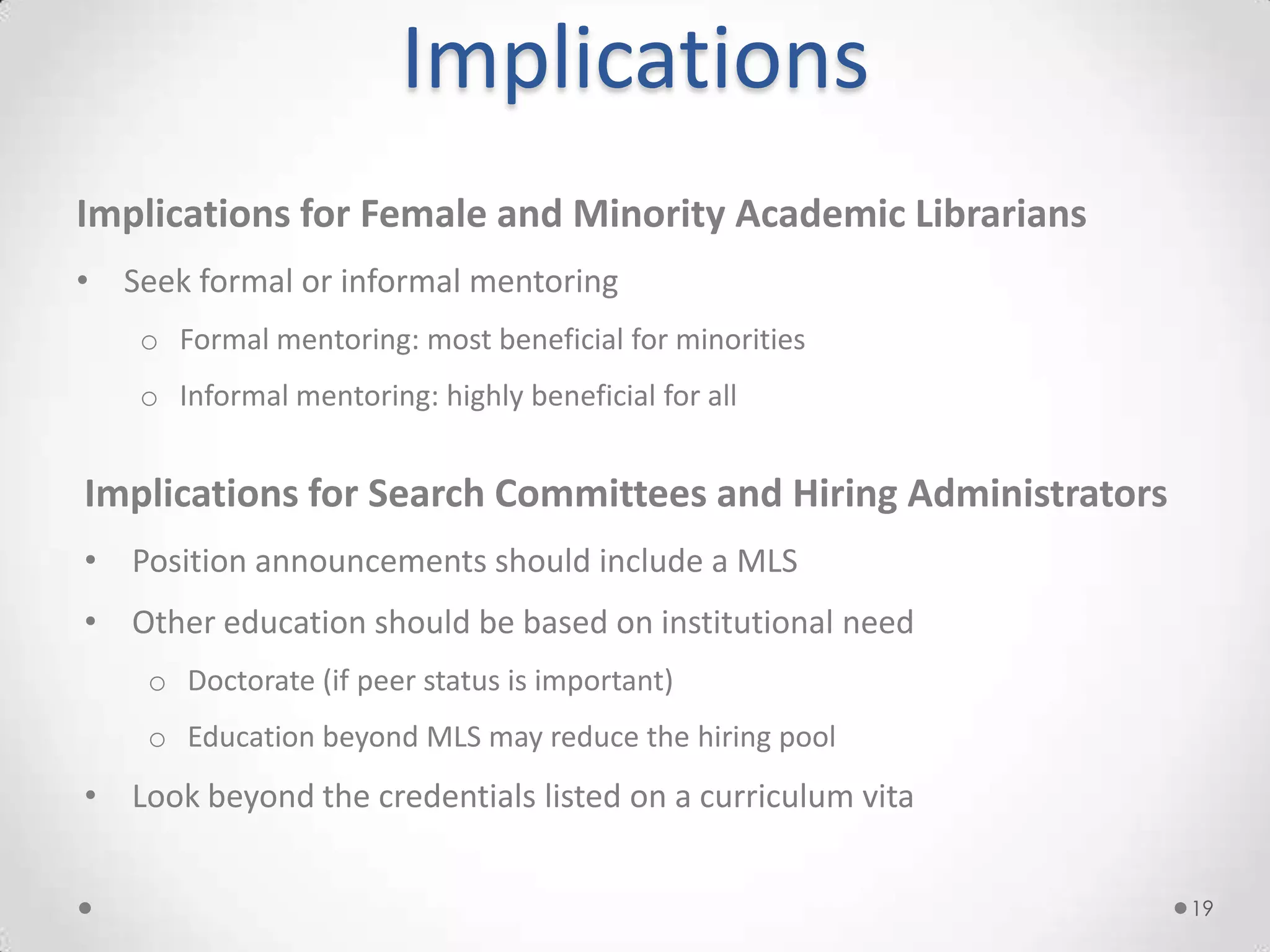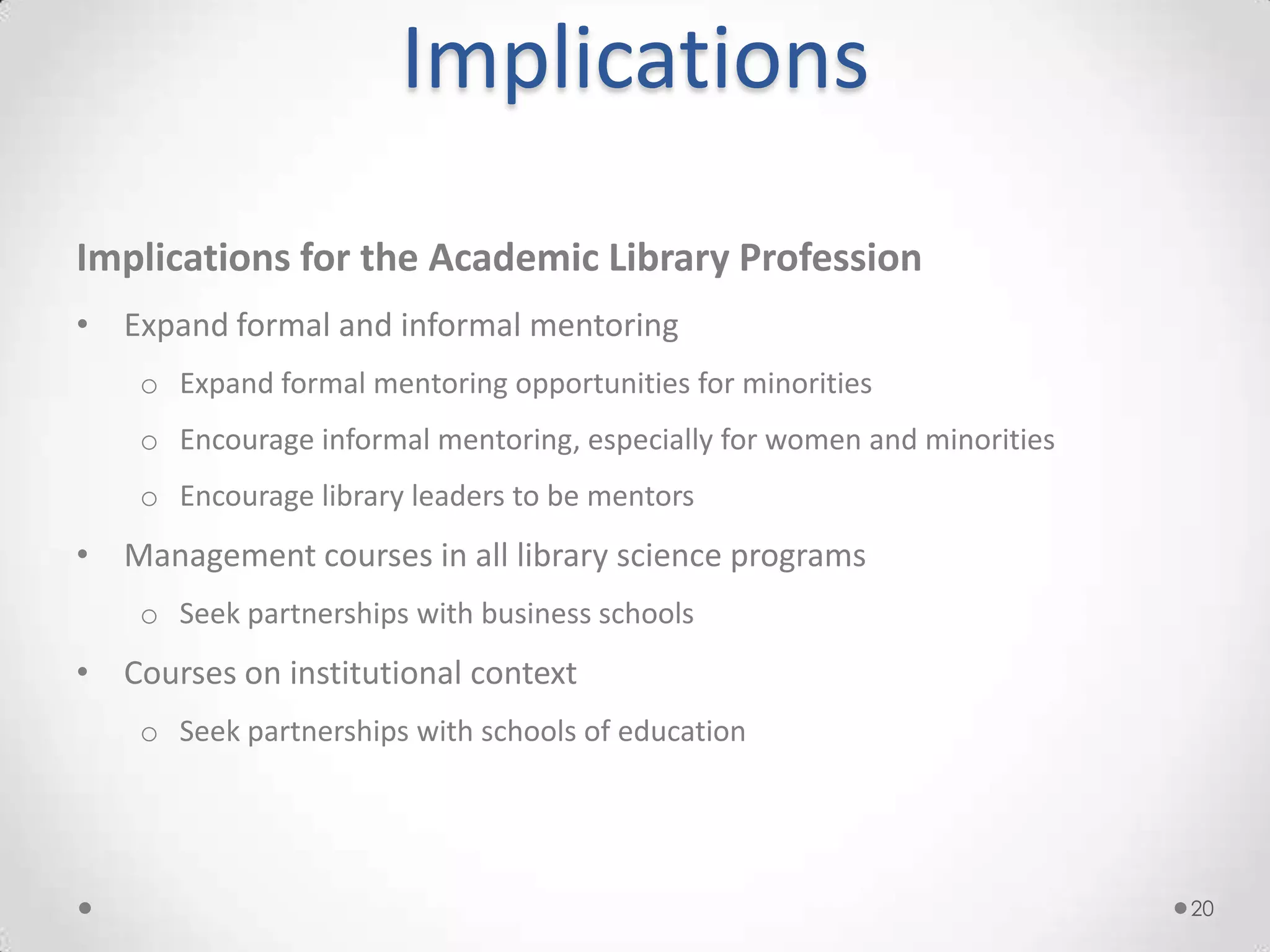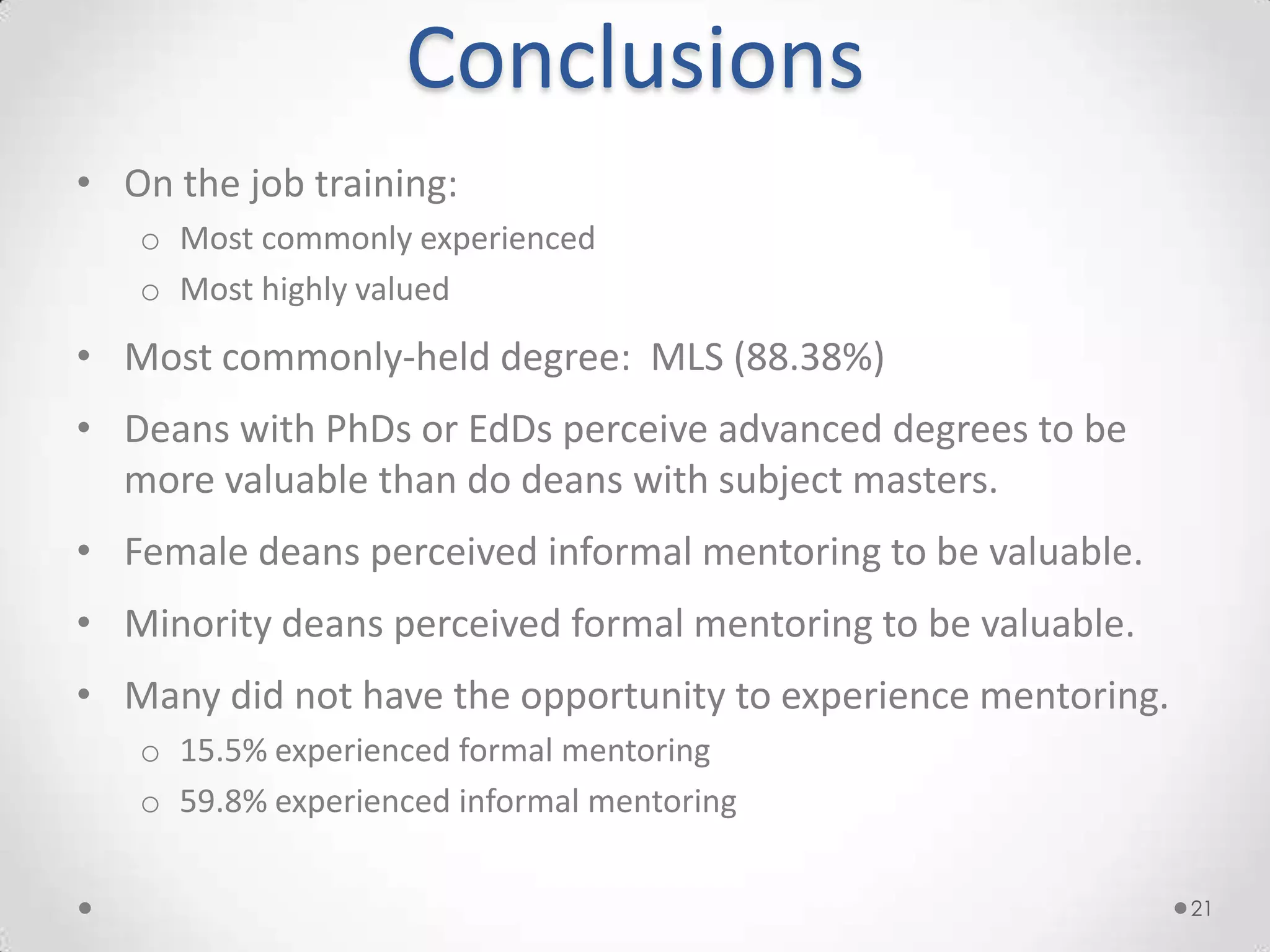The study surveys academic library deans to assess their preparation methods for administrative positions and their perceived value of these methods. Findings indicate that on-the-job training is deemed most effective, while mentoring is particularly beneficial for minorities. The results suggest a need for expanded formal and informal mentoring opportunities, especially for women and minority librarians.
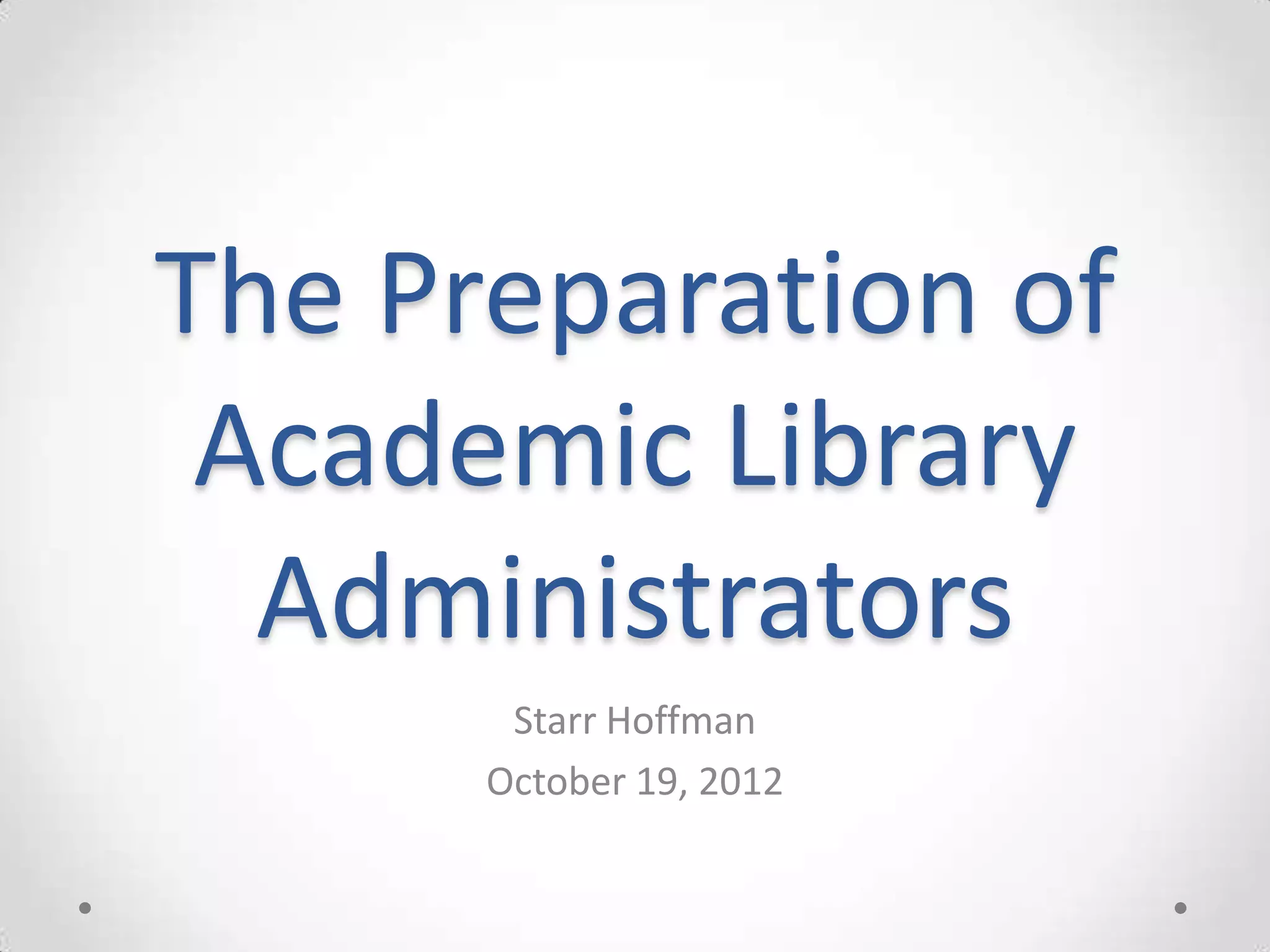
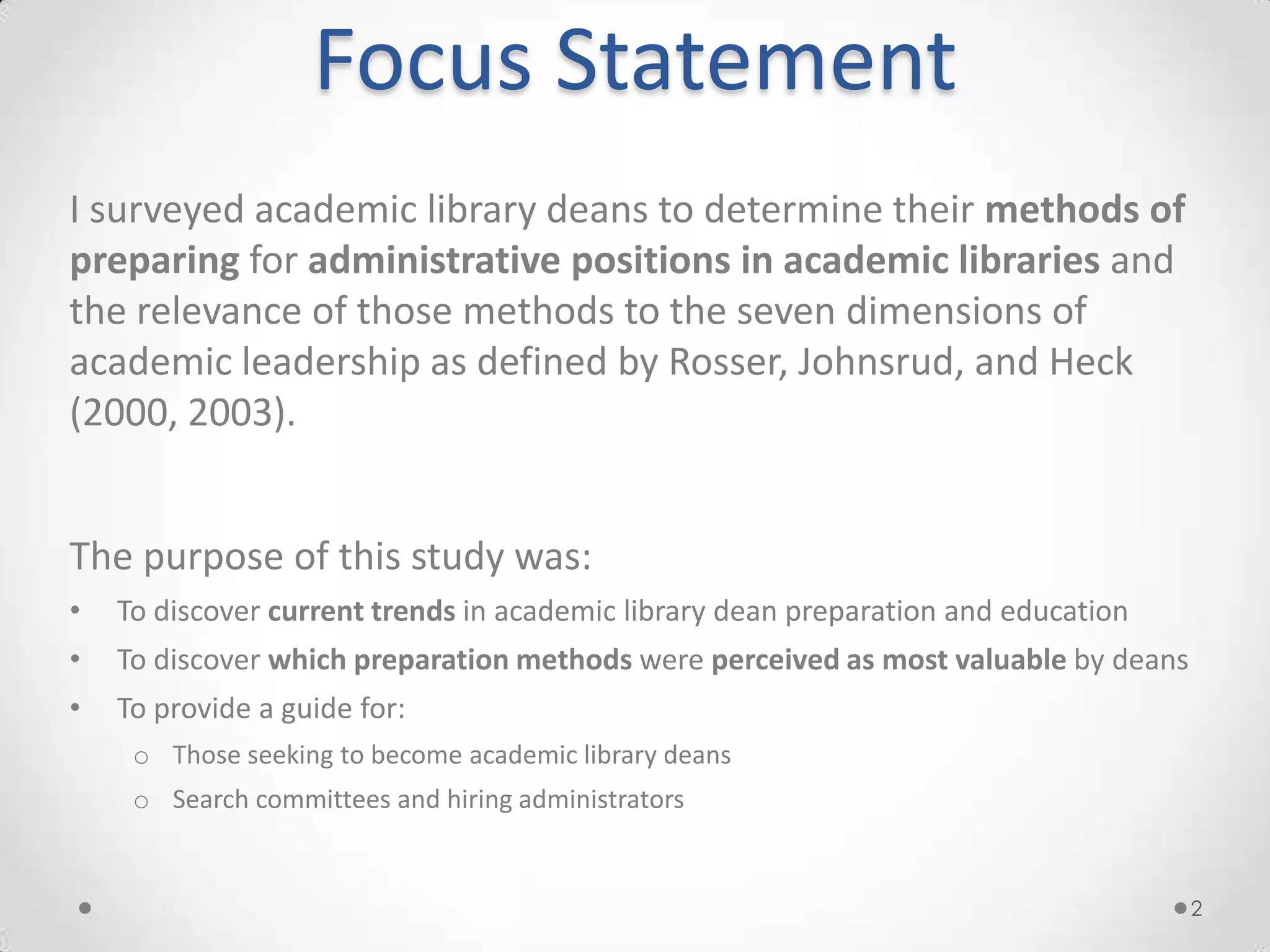
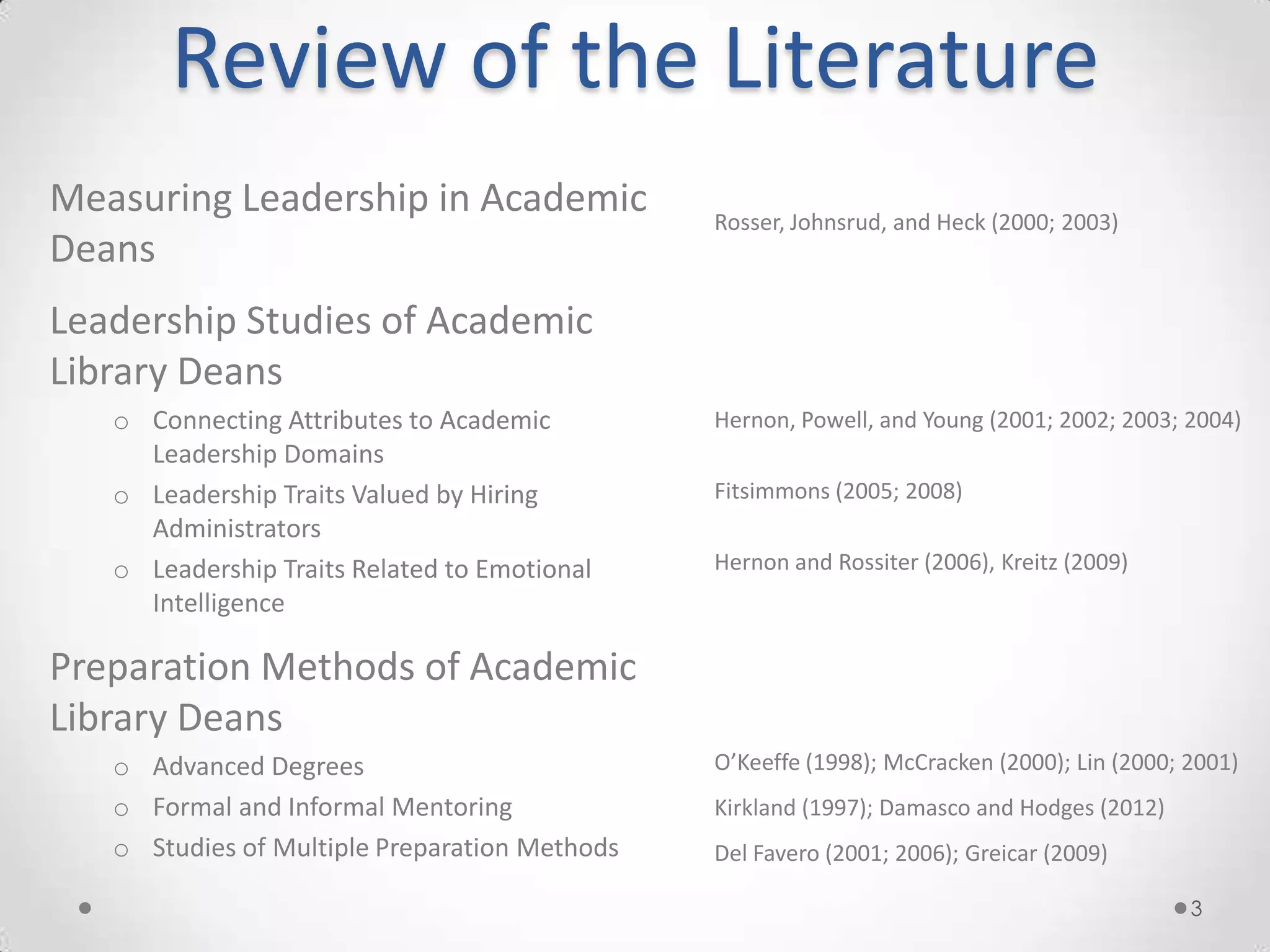
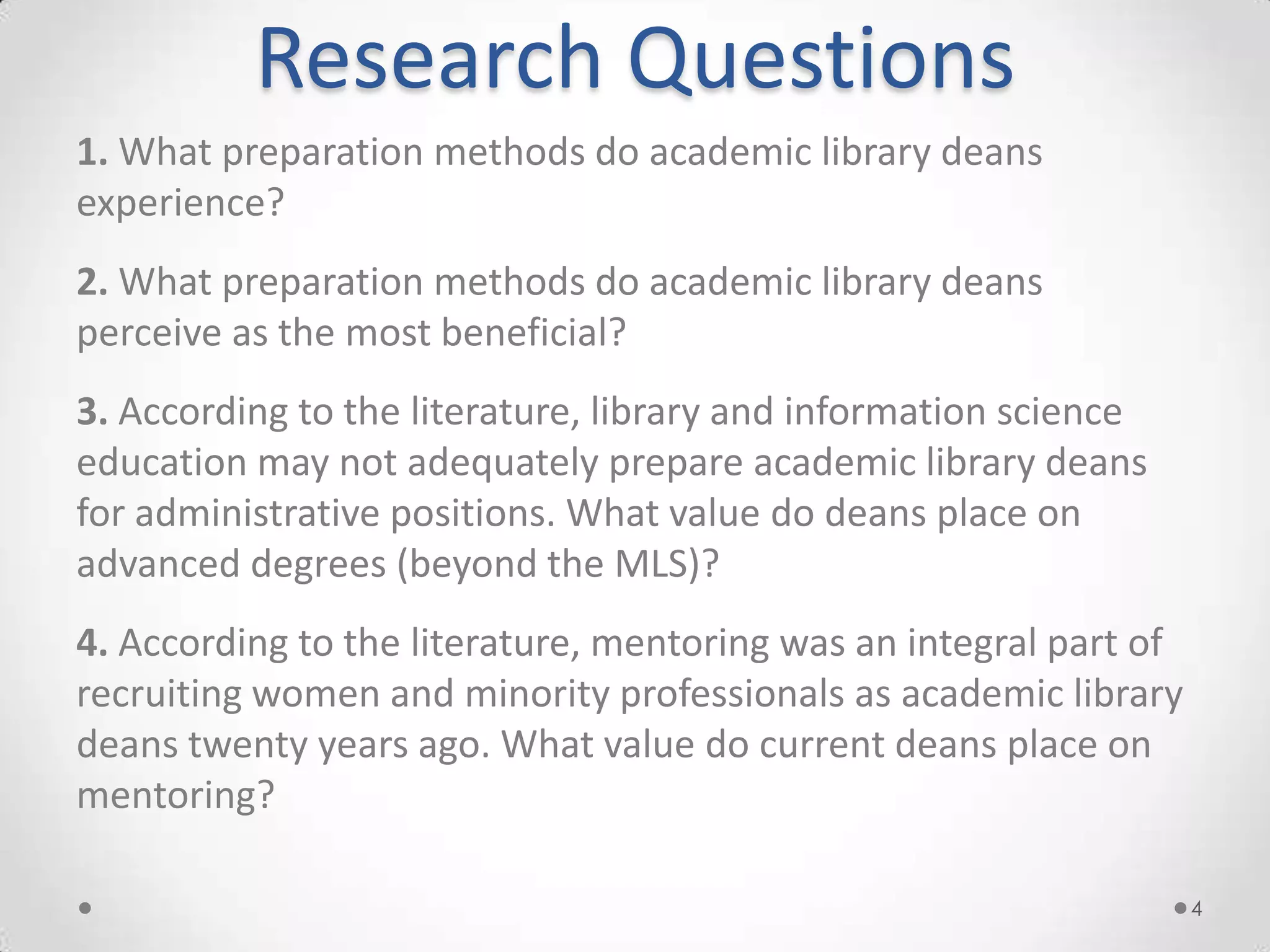
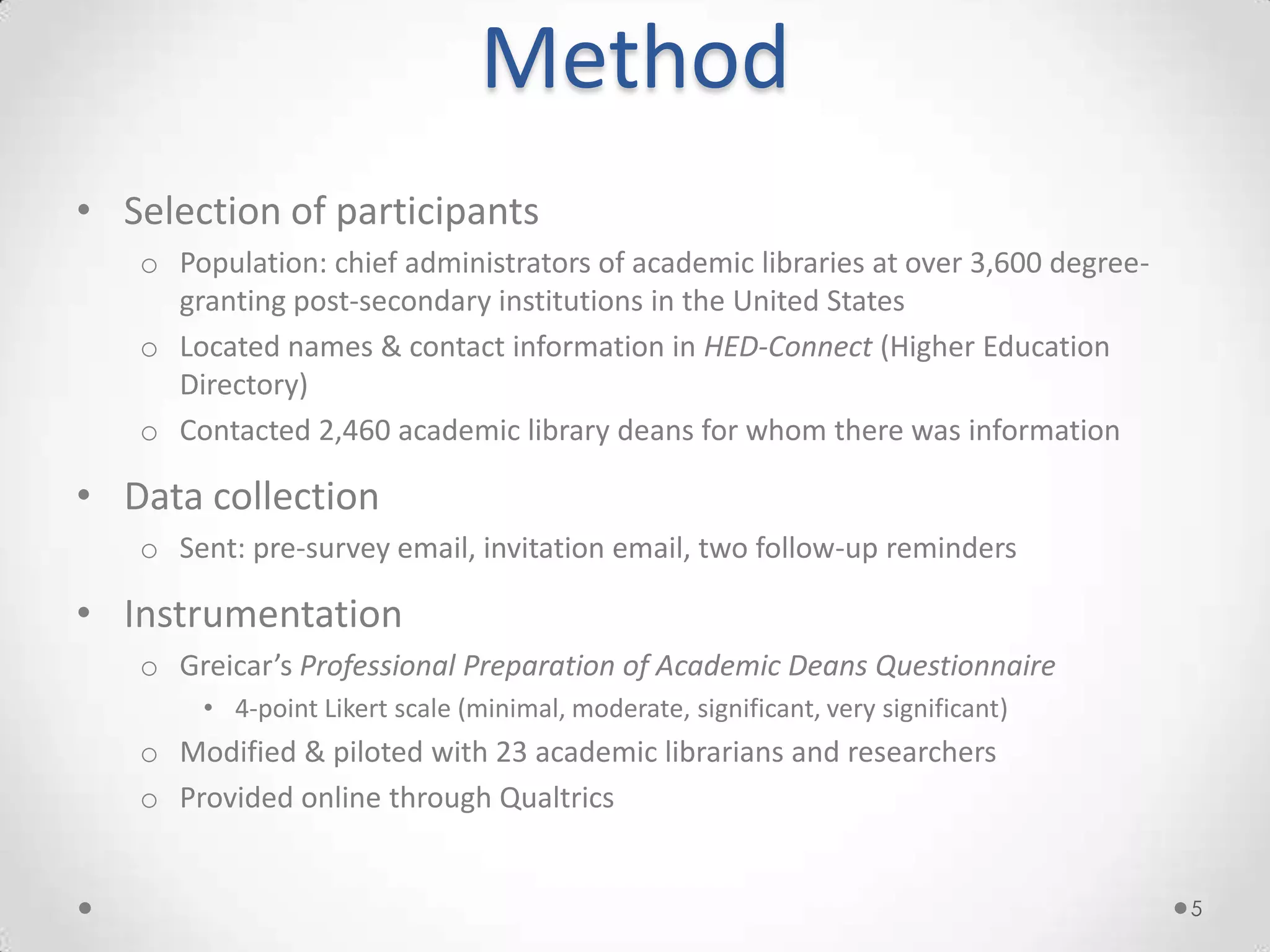
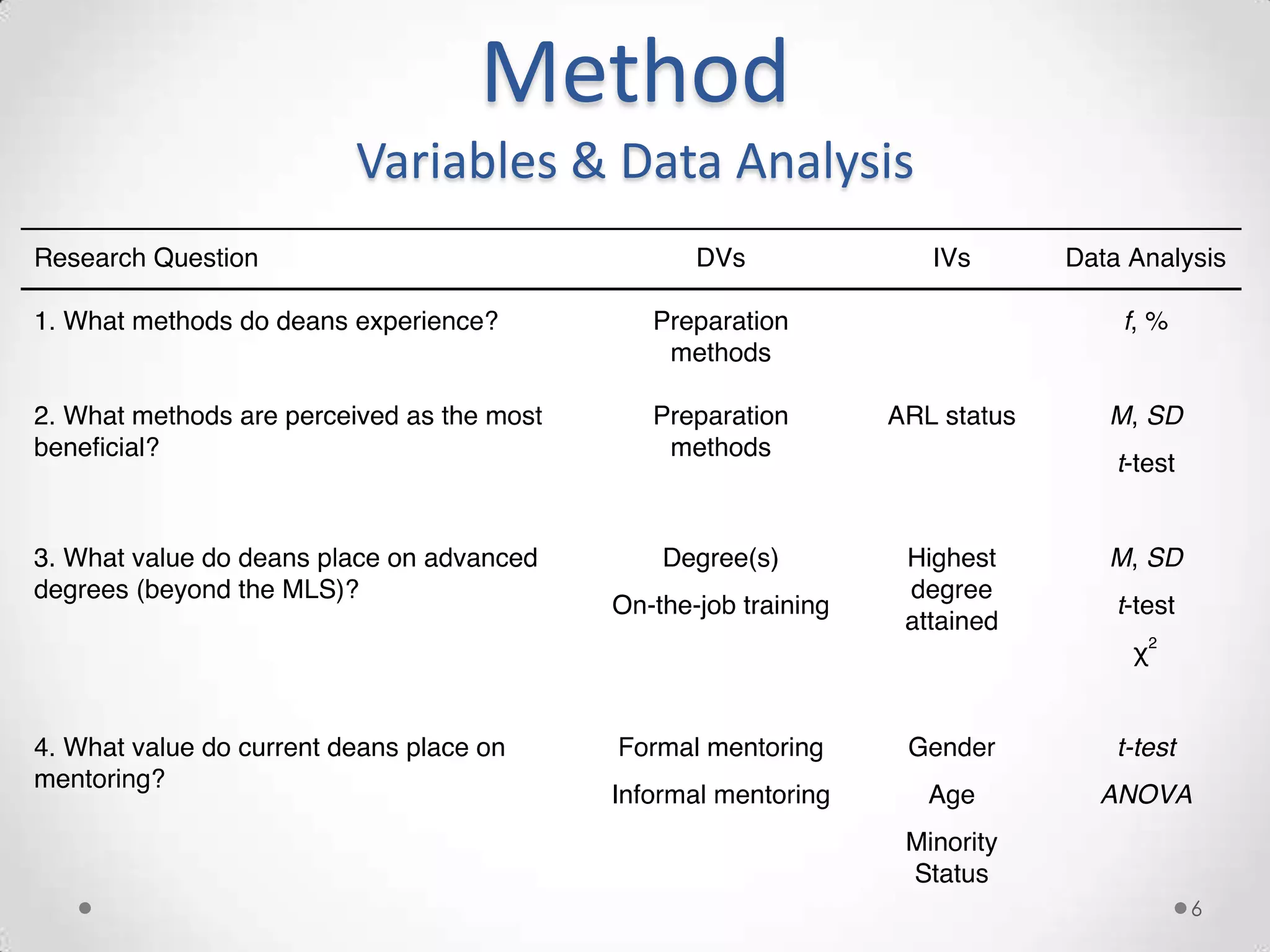
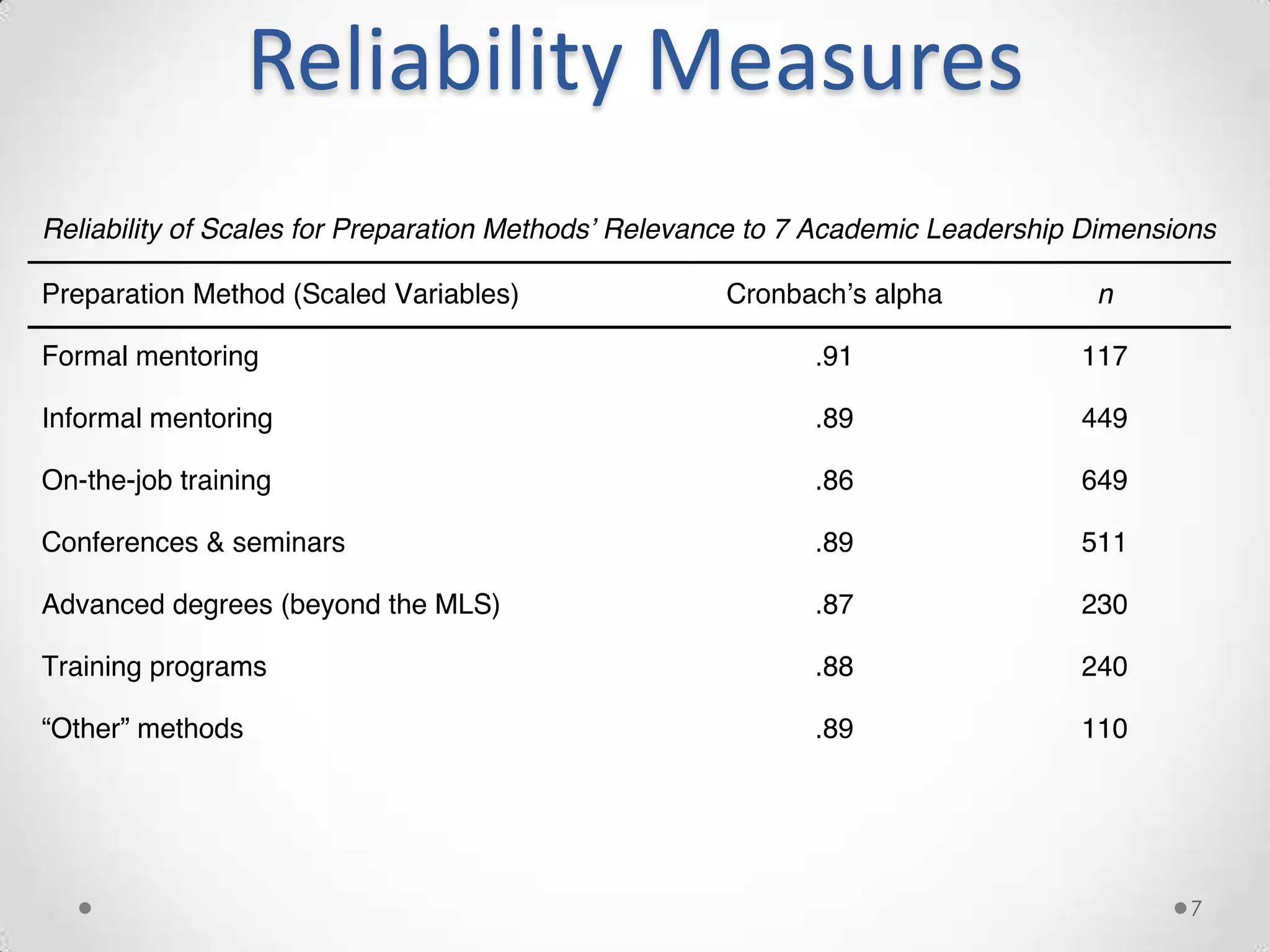
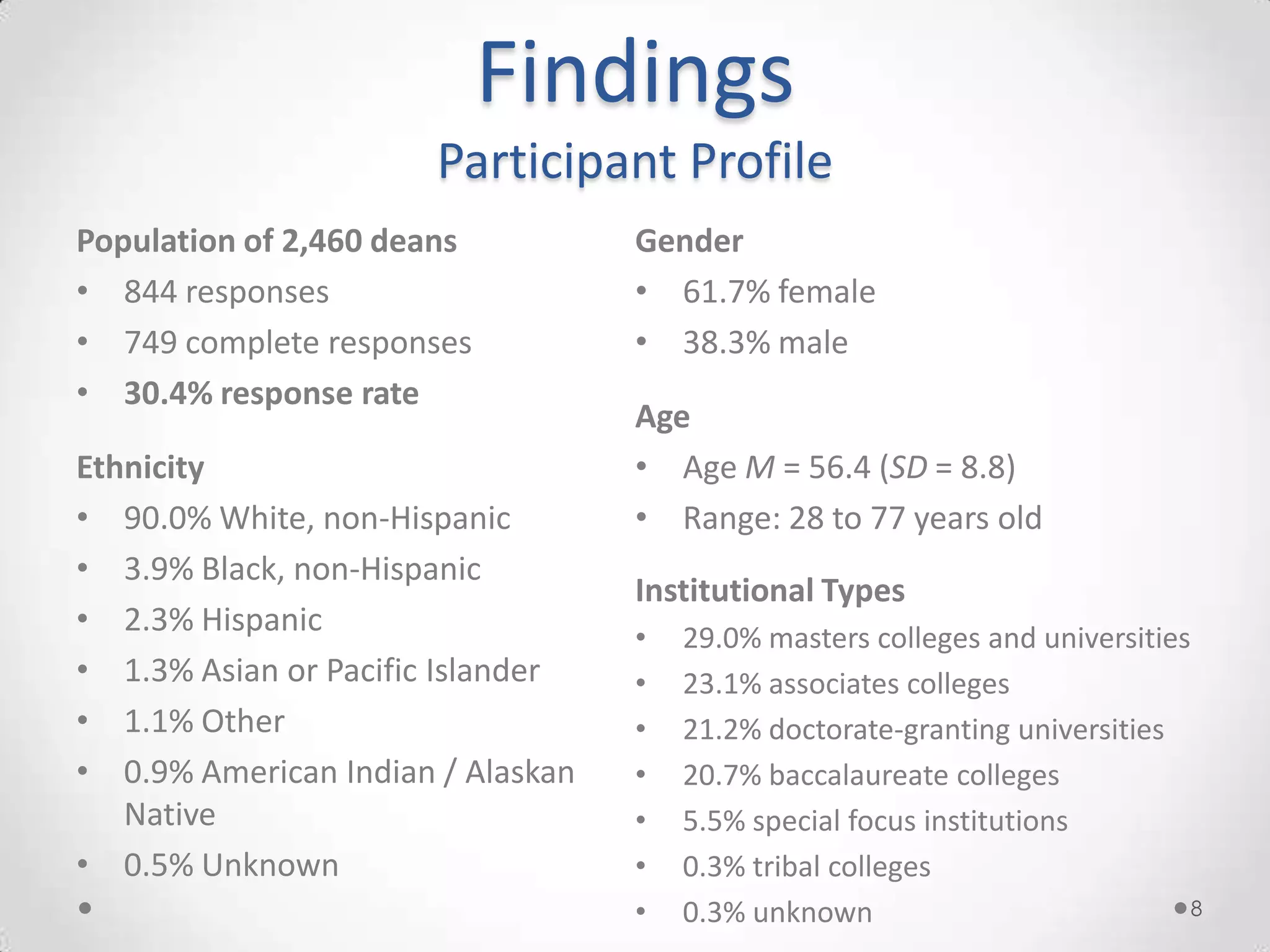
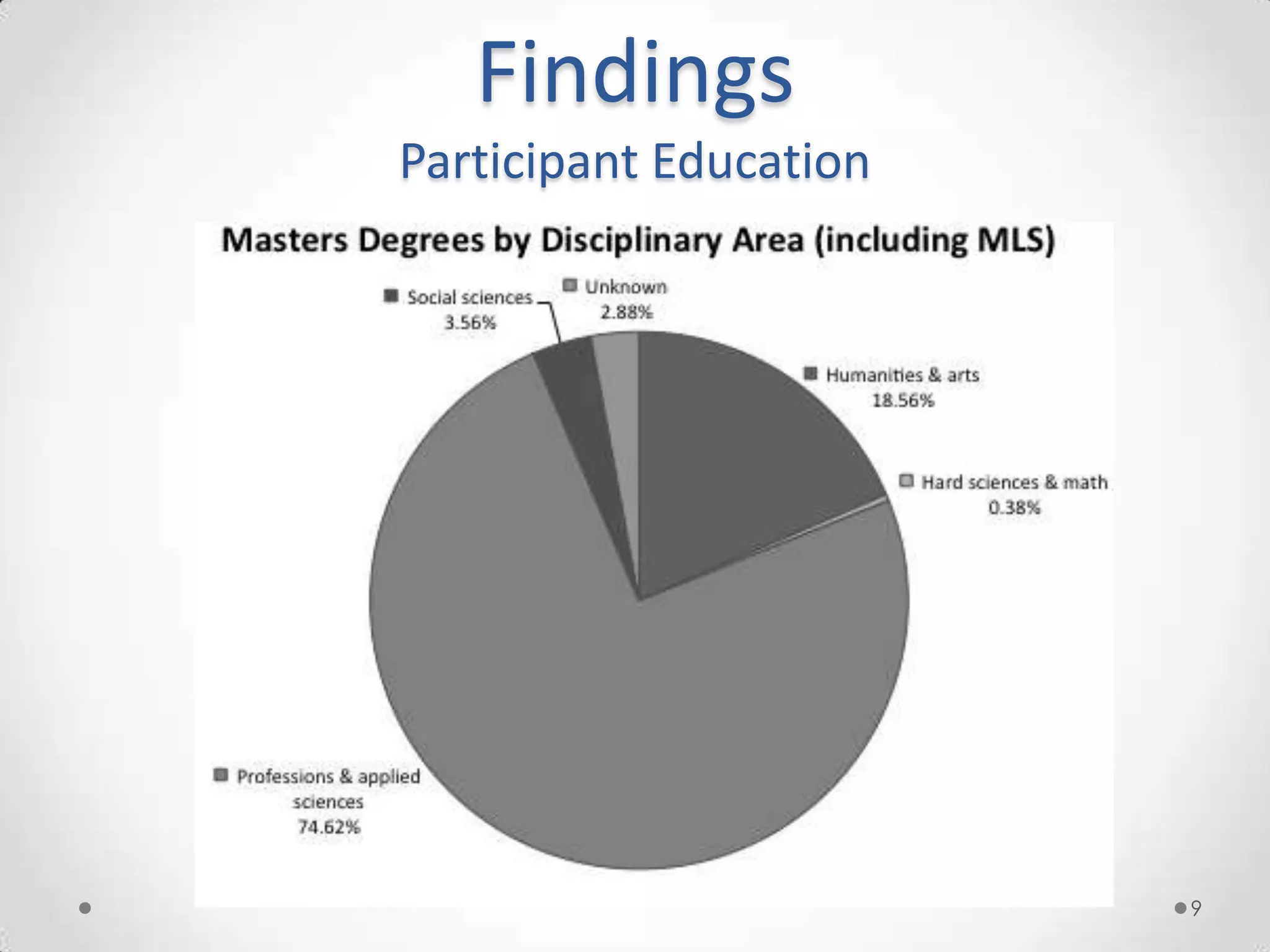
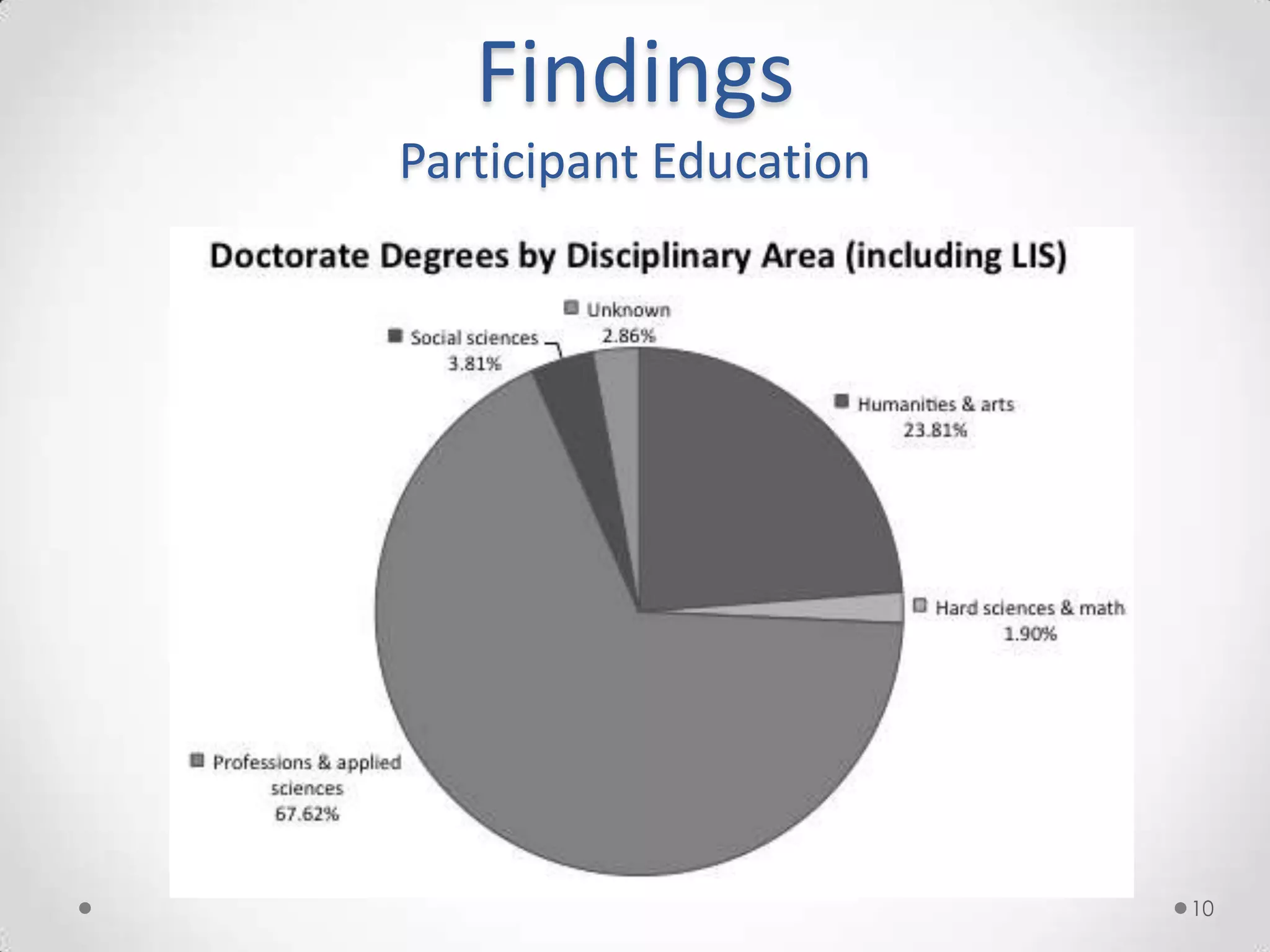
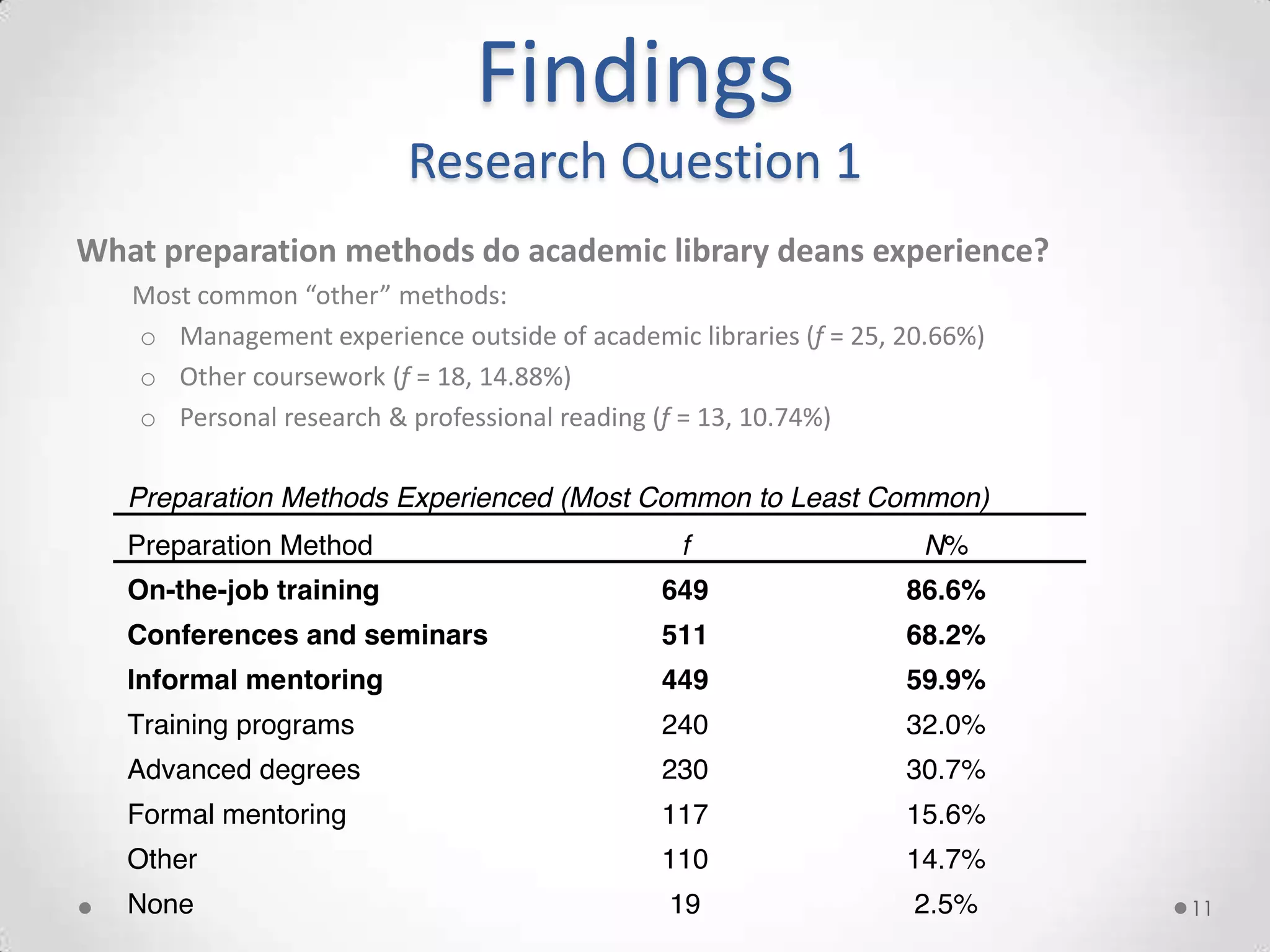
![Findings
Research Question 2
2a. What preparation method(s) do academic library deans perceive as the most
beneficial?
2b. Does preparation perceived as most beneficial vary by the employing
institution’s Association of Research Libraries (ARL) status?
Yes; formal mentoring varied. (t[112] = 2.16, p < .05)
• ARL deans found it more valuable (M = 22.75, SD = 4.63)
• non-ARL deans found it less valuable (M = 18.87, SD = 6.01)
12](https://image.slidesharecdn.com/hoffmandissdefense20121018-x-130120164612-phpapp01/75/Dissertation-Defense-The-Preparation-of-Academic-Library-Administrators-12-2048.jpg)
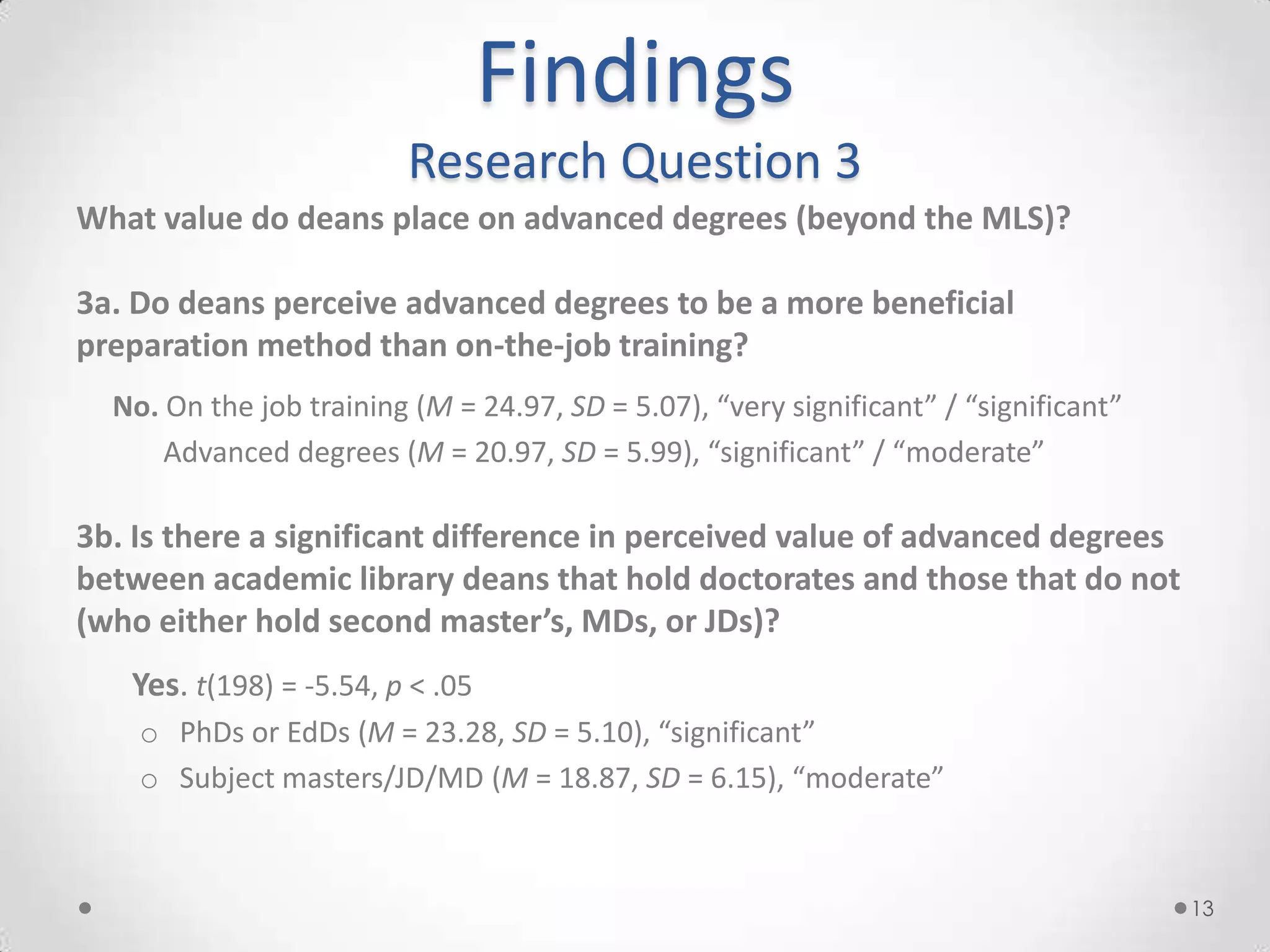
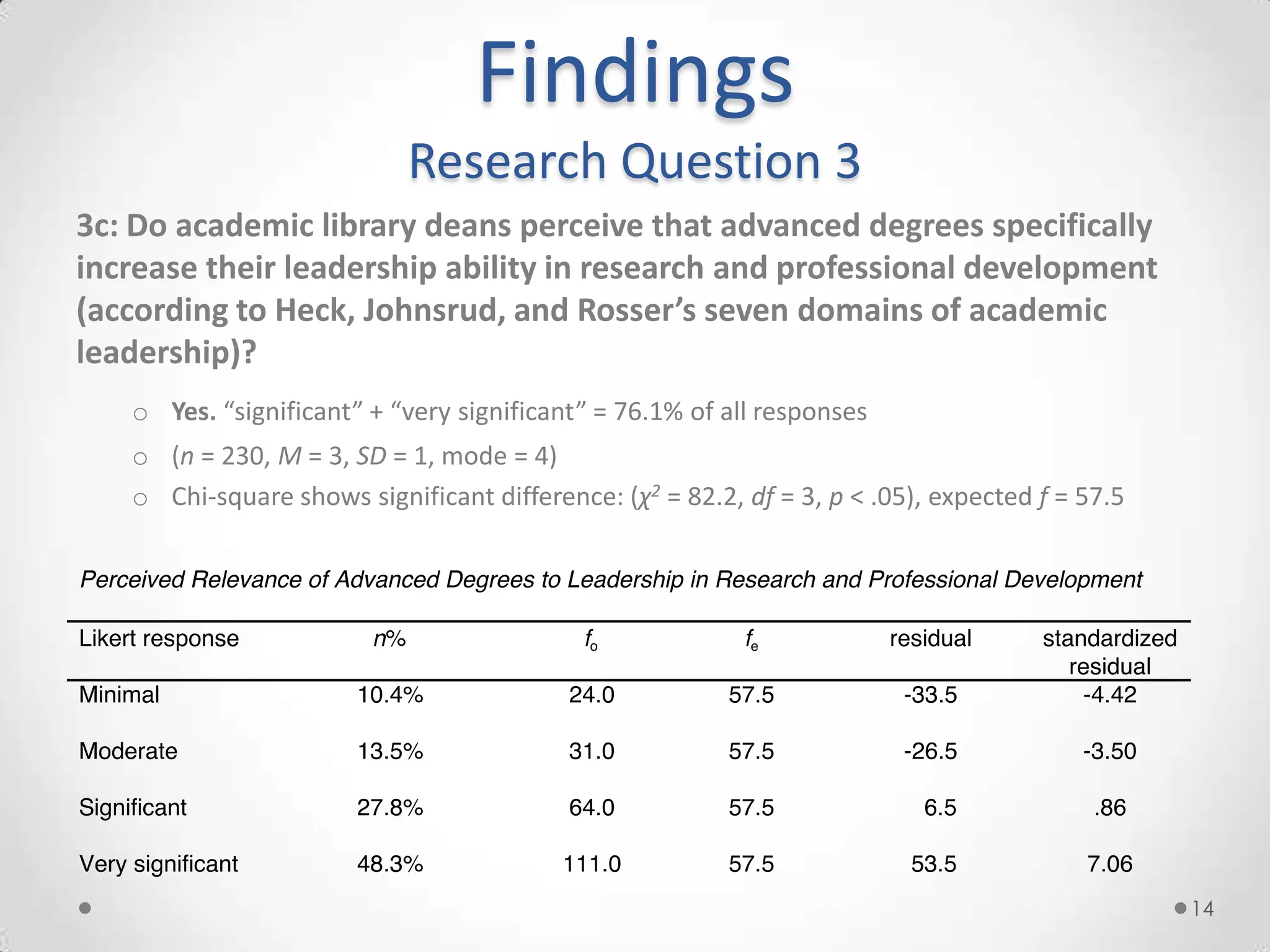
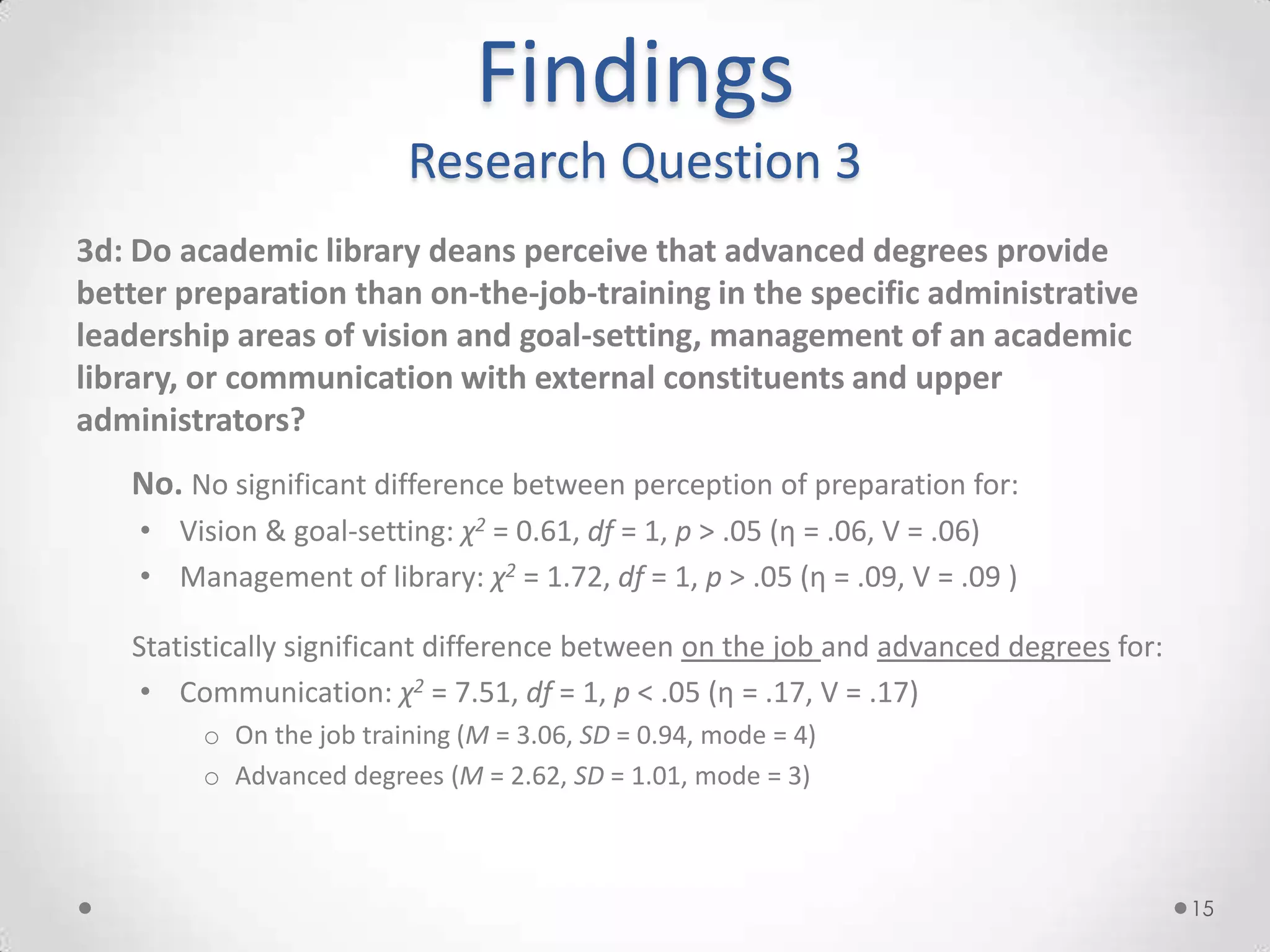
![Findings
Research Question 4
4a: According to the literature, mentoring was an integral part of recruiting
women and minority professionals as academic library deans twenty years
ago.
What value do current deans place on mentoring? Does this vary by gender?
Formal mentoring did not differ significantly (t[115] = -0.38, p > .05)
o women (M = 19.58, SD = 6.12)
o men (M = 19.14, SD = 5.76)
Informal mentoring differed significantly (t[447] = -2.12, p < .05, η = .10, η2 = .01)
o women (M = 22.18, SD = 5.51)
o men (M = 21.01, SD = 5.83)
If so, are these differences affected by age?
No.
16](https://image.slidesharecdn.com/hoffmandissdefense20121018-x-130120164612-phpapp01/75/Dissertation-Defense-The-Preparation-of-Academic-Library-Administrators-16-2048.jpg)
![Findings
Research Question 4
4b: Does this perceived value of mentoring vary by minority status?
Yes.
Formal mentoring differed significantly. (t[114] = 2.73, p < .05, η = .25, η2 = .06)
o minorities (M = 22.88, SD = 6.41), “significant”
o non-minorities (M = 18.74, SD = 5.68), “moderate”
Informal mentoring differed significantly. (t[441] = 3.05, p < .05, η = .14, η2 = .02)
o minorities (M = 24.46, SD = 5.10), “significant”
o non-minorities (M = 21.52, SD = 5.65), “significant”
17](https://image.slidesharecdn.com/hoffmandissdefense20121018-x-130120164612-phpapp01/75/Dissertation-Defense-The-Preparation-of-Academic-Library-Administrators-17-2048.jpg)
